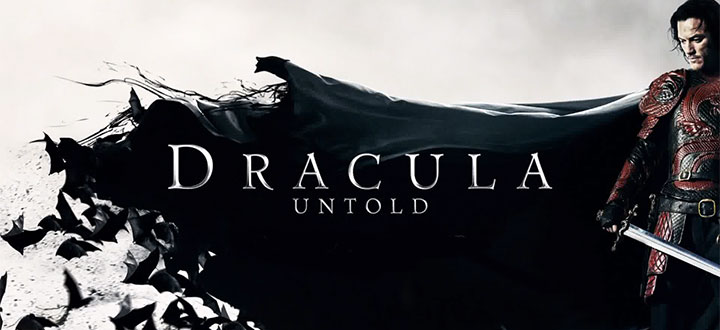Count Dracula has been featured by the film industry no fewer than eighty times, with most, if not all, of those portrayals using the typical vampire trope first created by Bram Stoker in his 1897 novel Dracula. Some films have broken this trope, however, and have attempted to qualify the myths that surround the character, Dracula. Released on Oct. 9 in South Korea at a film premiere and only recently available in theaters, “Dracula Untold” ameliorates the frustration caused by the repetitive nature of vampire films.
“Dracula Untold” sets the story with Dracula’s son as the narrator. The audience discovers that, despite his infamy, Dracula was a title bestowed to the Transylvanian prince, Vlad III. Here is where the history begins: Vlad III was a real ruler of Transylvania, whose legend now tells of a vampire. Dracula’s son explains that Vlad III was no monster, but rather a benign ruler of his people. This is where the history ends, and the fantasy begins: Vlad III single-handedly massacred entire armies, or so the story goes in “Dracula Untold.”
Vlad III, portrayed by Luke Evans, strikes the audience initially as a reliable character, but becomes so unrealistic that it is impossible to view the film in any light other than as a fantasy. While the director, Gary Shore, could have intentionally created such an ironic dichotomy, this is highly unlikely, as the film’s mood does not fit this purpose. In this sense, though the character portrayal is remarkable, the character development is insufficient.
“Dracula Untold” has similar aspects to several novels that have successfully incorporated the fantastical aspect of vampirism with the historical aspects of 15th century Romania. For example, the novel The Historian comes across as a work that artistically retrofits a vampire thriller with all the details that make a novel historical in nature. In The Historian, the author Elizabeth Kostova writes of an aspiring historian who attempts to uncover the mystery of Vlad III and is met with horror and surprise. The Historian includes the supernatural and the fantastical and is written from the narrative standpoint of a bystander, much like “Dracula Untold.” Yet “Dracula Untold” ultimately fails to deliver the same level of entertainment as The Historian. Unrealistic expectations may have deadened the film, but it still falls short of its potential.
Finally, given that “Dracula Untold” sought to approach the vampire trope through a historical perspective, the visuals and soundtrack are rather unremarkable. That is not to say that they fail to suffice the optimal standard, however. In fact, the soundtrack and visual effects actually served to shadow the poor writing and insufficient plot development. High standards for historical incorporation into film may be at work, but “Dracula Untold” was horrifying due to its appalling lack of thought-provoking elements. Indeed, any film effects of lower quality would have only exacerbated the issues with the film.
All in all, “Dracula Untold” proves a film enjoyable in the moment of viewing. It has everything a thriller needs: gore, violence, and horror. Yet it is decidedly disappointing and deserves the low public rating it has earned so far. Those interested in works that incorporate the fantastical aspect of vampirism and the historical aspects of fifteenth century Romania should turn to The Historian instead.
Photo Source: Jameson Dublin International Film Festival

